Flagged Header: Feature Article
Main Title: Thirty Years of Vision and Leadership
Sub Title: The International Red Brangus Breeders Association celebrates its 30th anniversary.
Author: by Emily Lochner
“Our directors took a long-term view of association business and squarely faced the issues raised with
open minds and foresight. The Brangus breed faces the coming years in a strong, aggressive position as a result
of board actions.”
These words were penned in the executive perspective article in the December 1991 Brangus Journal by
Neil Orth, then executive vice president of the International Brangus Breeders Association (IBBA) in regard to
the recent fall board meeting. At the meeting, held October 31, 1991, the 27 members of the IBBA board of
directors had voted on a number of issues that would affect the course of the association, namely the adoption of
Red Brangus into the IBBA registry system. Now 30 years later, vision, strong guidance, and leadership of
tenacious Red Brangus breeders has afforded the International Red Brangus Breeders Association (IRBBA) a
legacy of worldwide renown.
In the early 1990s, a group of Red Brangus breeders began to seek a structured advancement of Red
Brangus cattle knowing the need for accurate performance records and data keeping systems.
“I remember sitting down with a few other Red Brangus breeders and meeting with Neil Orth at a
restaurant in Schulenberg, Texas, in the spring of 1991 to explore the option of registering 3/8 x 5/8 red cattle in
the IBBA registry,” says Don Cox, now past IBBA and IRBBA president. “Orth said he would approach the
IBBA executive committee and board of directors in short order.”
It didn’t take long for both the Red Brangus breeders and IBBA to see the value in joining forces. An
excerpt from the 1991 IBBA fall board meeting minutes read, as follows:
“J. Neil Orth, IBBA executive vice president, addresses the board informing the members of a
developing interest by Red Brangus breeders to register cattle with the IBBA. After brief discussion,
Lanny Vinson, Abilene, Texas, made a motion to allow Red Brangus cattle to be registered with the
IBBA; allow the cattle used in breeding up to Red Brangus to be enrolled and certified with the IBBA;
and allow Red Brangus breeders to become members of the IBBA and enjoy the same service and
programs as existing members do, including advertising in the Brangus Journal. Vinson requested the
president appoint a transition committee consisting of Red Brangus breeders and IBBA board members
to adopt the proper rules and wording to allow Red Brangus cattle to be registered and the necessary
foundation cattle to be enrolled and certified. After discussion, the IBBA board passed the motion with a
unanimous show of hands.”
“When Neil Orth first approached the executive committee [the president, vice president, secretary and
ex-officio] with the idea of adding red cattle into the registry system, we didn’t even think twice about it,” says
Dr. Robert Vineyard, 1991 IBBA board of directors’ vice president. “The consensus we came to was a positive
one. We were able to see the vision of the Red Brangus breeders right from the start; no matter the color they
raised, these were just good cow people and we knew we needed to surround ourselves with more of that.
Months later, when the executive committee presented the pitch to the full board for approval, we presented it
with an outlook that spanned many decades. We wanted the IBBA to lay the groundwork for a successful Red
Brangus incorporation, but the work to build it would be up to the red members themselves.”
Initially, it was agreed upon that the IBBA would provide registration services and EPD calculations on
Red Brangus cattle for $2/head. Previously, no certain percentage of Angus x Brahman mix was required for
Red Brangus registration. Pete Keeling, a prominent Red Brangus breeder of the time, took on the arduous task
of hand reviewing and calculating percentages by hand on every single Red Brangus animal to determine if they
met the 3/8 x 5/8 threshold before passing onto the IBBA.
In the spring of 1992, the red division of the IBBA was formed, now known as the International Red
Brangus Breeders Association (IRBBA). Ten breeders: Don Cox, Jim Graven, Jim Hunt, Pete Keeling, Johnny
Kopycinski, Dennis Kmiec, Gordon Miller, John Werner, Bryan Rabon, and Warren Wackman Jr., each paid
$1,000 as charter members and the IRBBA was born. This arrangement allowed the red breeders to have their
own officers and board of directors, and to operate with registration papers and EPDs without any financial
overhead. Jim Hunt had served as president of the group for the two years prior to creation of the IRBBA. Pete
Keeling served as president for the first three years, followed by Don Cox and Dennis Kmiec for three years
each. Pete Keeling returned as president for one more year and Marcos Borges Jr., a Brazilian citizen and
rancher in Wharton, Texas, has served since.
“When the IRBBA first joined the IBBA, we were actually the only country in the world that had red
and black Brangus cattle registered in two different associations. Every other country had reds and blacks under
the same roof. So that really helped solidify the fact we were making the right decision to join the IBBA,” notes
Cox.
In the summer of 1992 at the IBBA summer gathering in Kerrville, Texas, Red Brangus bulls and
females were on display for the first time. A Dogwood Creek bred female became the first Red Brangus to sell
in an IBBA sanctioned sale. She was purchased by Whitehall Plantation in Louisiana.
“Some of the founding sire lines are still seen in cow herds across America,” notes Bruce Buffaloe, long
time Red Brangus breeder. “The bloodlines of Chief Cardinal, Predominate, Premier, and Red Jack helped lay
the foundation for the Red Brangus cattle of today.”
“In 1992, Johnny Kopycinski, Jim Hunt and I met with Don Jobes, then livestock coordinator of the
Houston Livestock Show and Rodeo (HLSR),” recalls Don Cox. “At the time, there was an American Red
Brangus Show at Houston, but it allowed any percentage of Brahman x Angus cross to enter the show; we
wanted our own 3/8 x 5/8 show under the IRBBA umbrella. For over three hours we sat in Don Jobes’ office
and tried our case, hearing the word ‘no’ quite frequently. Finally, he leaned over his desk, pointed his finger at
us and said, “I’ll let you have a show, but if you come with one animal less than 40 head, you’ll never show
here again!’”
The spring of 1993, HLSR saw its first 3/8 x 5/8 Red Brangus show, thanks to the leg work done by
forward thinking breeders. “A lot of the IRBBA breeders packed our trailers and brought more head than we
would’ve ever considered taking to a show, just to meet the minimum number requirement,” says Cox.
The 1993 HLSR IRBBA show had 43 head. They had a standalone show for many years, until 2006
when the IRBBA and IBBA show became one in the same, showing red and black alternating divisions. Several
decades later, Don Jobes retired from the HLSR, he sold all of his commercial cattle and purchased registered
Red Brangus. He became an IRBBA member and supporter after a compelling argument made by Red Brangus
breeders many decades prior.
In 1995, the directors decided to host their own IRBBA sponsored sale. The sale was named the
“Genetic Edge Sale” and was planned for March 1996 in Brenham, Texas. The Genetic Edge I attracted bidders
from four states and the Republic of South Africa. Thirty-three lots sold for $99,000 and a tradition was born. In
2000, the sale was moved to the Houston Livestock Show and Rodeo (HLSR). To this day, it is held during the
international week at the HLSR to accommodate the many international breeders that attend.
In 2005, after 15 years of registering and receiving EPDs from the IBBA, the next step in inclusion was
seen. The IBBA proposed to IRBBA a membership merge into one parent association – IBBA.
While debating the offer, IRBBA Director Jim Hunt stated, “Isn’t that what we have been working for
all these years?”
The IRBBA board agreed to support joining, and the membership soon after solidified the decision. In
2006, red and black Brangus became full partners in one breed association, the IBBA. Don Cox and Marcos
Borges Jr. came onto the IBBA board as transitional non-voting board members to serve a three-year term in
facilitating the merger. In 2009, Don Cox was elected to a board seat on the IBBA board, and in 2010 became
the first Red Brangus president of the IBBA; followed by Allen Goode in 2021.
In 2008, the Genetic Edge XIII saw a new chapter in history, offering both red and black lots in the sale.
The IRBBA is no longer a breed registry organization, but it lives on as a promotion organization for Red
Brangus and a reminder that commitment is fundamental to progress.
“The IRBBA Annual Meeting was held at breeders’ ranches until 2010 when the venue was moved to
the Texas A&M Beef Center,” recalls Buffaloe. “Breeders from all over the world attend the IRBBA Annual
Meeting. The evening before the meeting, the IRBBA scholarships are awarded. Generally, three to four senior
academic scholarships are awarded and a junior scholarship for use in sports or other endeavors is awarded.
During the annual meeting, the association fiscal resources and other committee reports are reviewed. The
morning meeting is culminated with breeders selecting the Breeder and Member of the Year. In the afternoon,
the Divas in Red Sale is conducted which showcases 10 to 15 premier International Red Brangus heifers.”
“The IRBBA exists to provide marketing avenues for registered Red Brangus cattle within the
continental United States as well as tropical areas around the world,” says Marcos Borges Jr., IRBBA president.
“Marketing is achieved through member website listing, advertising, private treaty sales, breeder production
sales, yearly shows, gain tests, and an annual association sponsored sale known as the Genetic Edge Sale for
members to market their cattle. It is a big accomplishment that the Genetic Edge sale now promotes and
markets both red and black cattle together. The IBBA has brought Red Brangus breeders technology for
registrations and genetic data analysis that increased the value of Red Brangus cattle to breeders across the
globe.”
Pull quote: “The IRBBA exists to provide marketing avenues for registered Red Brangus cattle within the
continental United States as well as tropical areas around the world.” -Marcos Borges Jr., Wharton, Texas
From the moment red options were added to the color score menu at the IBBA, Red Brangus breeders
put their foot on the gas pedal and haven’t let off since.
“The breeders that came in were just progressive and aggressive,” remembers Vineyard. “And truthfully,
if it weren’t for Don Cox and Neil Orth, the IRBBA would have never become what it is today.”
It was a broad, worldly industry approach the Red Brangus breeders headed, well past the show rings of
America.
“We traveled all over the world, especially Mexico, to help establish their red association, now known
as Brangus Rojo de México. The red breeders have always found it important to travel internationally. A core
group of breeders has traveled to every World Brangus Congress; with the help of Neil Orth, we were pleased to
host the first World Brangus Congress in Houston in 2000,” comments Cox.
“The involvement with breeders of Mexico in the early days of the IRBBA has been key to the growth
and success of Red Brangus and the IRBBA,” mentions Buffaloe. “A couple to name are Guillermo Zambrano
of Hacienda La Escondida, the Ballandrano Family of Rancho Los Nogales and many more. In 1999, Guillermo
Zambrano, who was a progressive breeder of cattle in Mexico, recognized that Red Brangus were the best cattle
to tolerate the extreme heat in Mexico. Guillermo invited the IRBBA board of directors to Monterrey, Mexico,
for an introductory meeting with 40 progressive Mexican cattlemen. These cattlemen wanted to convert their
herds to Red Brangus cattle. Guillermo provided a registration platform, office, executive director, and all
funding required to initiate the registration of International Red Brangus in Mexico. Essentially, he formed,
funded, and promoted the Mexican Red Brangus Association. This generous support by Guillermo created high
demand for International Red Brangus cattle in Mexico. Other Central and South American countries soon
followed this trend.”
“The IRBBA members bring a lot of experience in international marketing,” says Borges. “The IRBBA
members have traveled the world analyzing the needs of Red Brangus breeders in different countries and
environments. The IRBBA connection worldwide is very strong. The relationships and friendships of IRBBA
breeders have brought cattlemen from across the world to the U.S. and provided opportunities for the IBBA to
increase its international presence.”
Based on population percentage, Red Brangus cattle are one of the highest exported breeds in the United
States.
“The IRBBA works to promote the entire breed,” adds Allen Goode, IBBA president, IRBBA vice
president, and Red Brangus breeder. “As a whole, Red Brangus breeders are very active when it comes to
international involvement, they’re ambassadors of the breed and their involvement in other countries is pivotal.”
Alongside the breeder’s guidance, the Red Brangus cattle sing for themselves in international countries,
namely Central and South America, Africa, India, Australia, and New Zealand in hot, humid environments.
“The Red Brangus cattle are highly adaptable,” notes Goode. “The red cattle can go into the hot, humid
climates and perform better than their contemporaries. They have the ability to shed their hair quickly, and still
have the fertility and carcass merit that Brangus cattle are known for. IBBA Red Brangus breeders have
continued to place focus on quality cattle backed with strong performance numbers and it’s led to our herds to
be the leading source for genetics in the Red Brangus world.”
“Anyone who owns Brangus – black or red – knows it’s the best maternal breed,” adds Cox. “If you
look at where the cattle numbers are across the globe, they fall into places like Brazil or India where Brangus
cattle excel. When you start to add the numbers, eared cattle are, by some margin, the majority of the cattle in
the world. Therefore, the future is in our hands. If we can continue to access hot and humid environments in
Central and South America, we’ll grow this breed forever and ever.”
The vision and leadership of Red Brangus breeders today, and the vision and leadership of the IBBA
three decades past have led to a powerhouse association the best breeders knew and expected.
“Going through this process over time has given me a very satisfying feeling of self-achievement toward
a worthwhile goal,” says Dennis Kmiec, one of 10 original IRBBA founders. “I compare it to a person taking an
under developed piece of property and developing it into a nice landscaped home place. This is more fulfilling
than buying that home place already developed. It was and still continues to be a lot of work, but, for the most
part I have enjoyed the journey.”
Ironically, from 1990-1991, the IBBA board had been developing a 10-year long-term plan with five
key objectives. Unbeknownst to them, an unforeseen annexation of Red Brangus cattle would quickly help
elevate their ambitions. The 1992 IBBA Long Term Plan objectives included:
1. Learn from the Brangus customer what product is desired and aim the breed at delivering that product to
the market
2. Address and pursue opportunities for increasing breed revenue
3. Review the structure, function, and effectiveness of the volunteer organization
4. Aggressively pursue international opportunities in Mexico and elsewhere
5. Maintain and strengthen the junior program
Each bullet of their core objectives could and would be advanced by the strengthening of the association’s
addition of Red Brangus cattle and breeders into the IBBA. Neil Orth’s executive perspective article in the
December 1991 Brangus Journal concluded 30 years ago, a truth that still stands today.
“The board unanimously voted to welcome Red Brangus breeders to the IBBA and to allow the registration
of Red Brangus cattle. In the purebred industry in the past, strict adherence and loyalty to tradition caused other
breed associations to pass by opportunities to expand their registries or initiate appendix programs for closely
related breeds. When troubled times came in the purebred industry, many of those associations found
themselves in jeopardy because of their long-standing ‘traditions.’
The IBBA board, in welcoming the Red Brangus breed, has expanded the influence of our organization and
provided the flexibility to successfully meet future economic conditions and challenges. Though the decision is
a historical mark for the Brangus breed, the philosophy behind the action is not. Early Brangus leaders set a
good tradition of industry leadership and the 1991 board of directors continued in that same philosophy with
this decision. A transition committee has been formed to develop the smoothest incorporation of Red Brangus
into the IBBA and we are happy to welcome them.

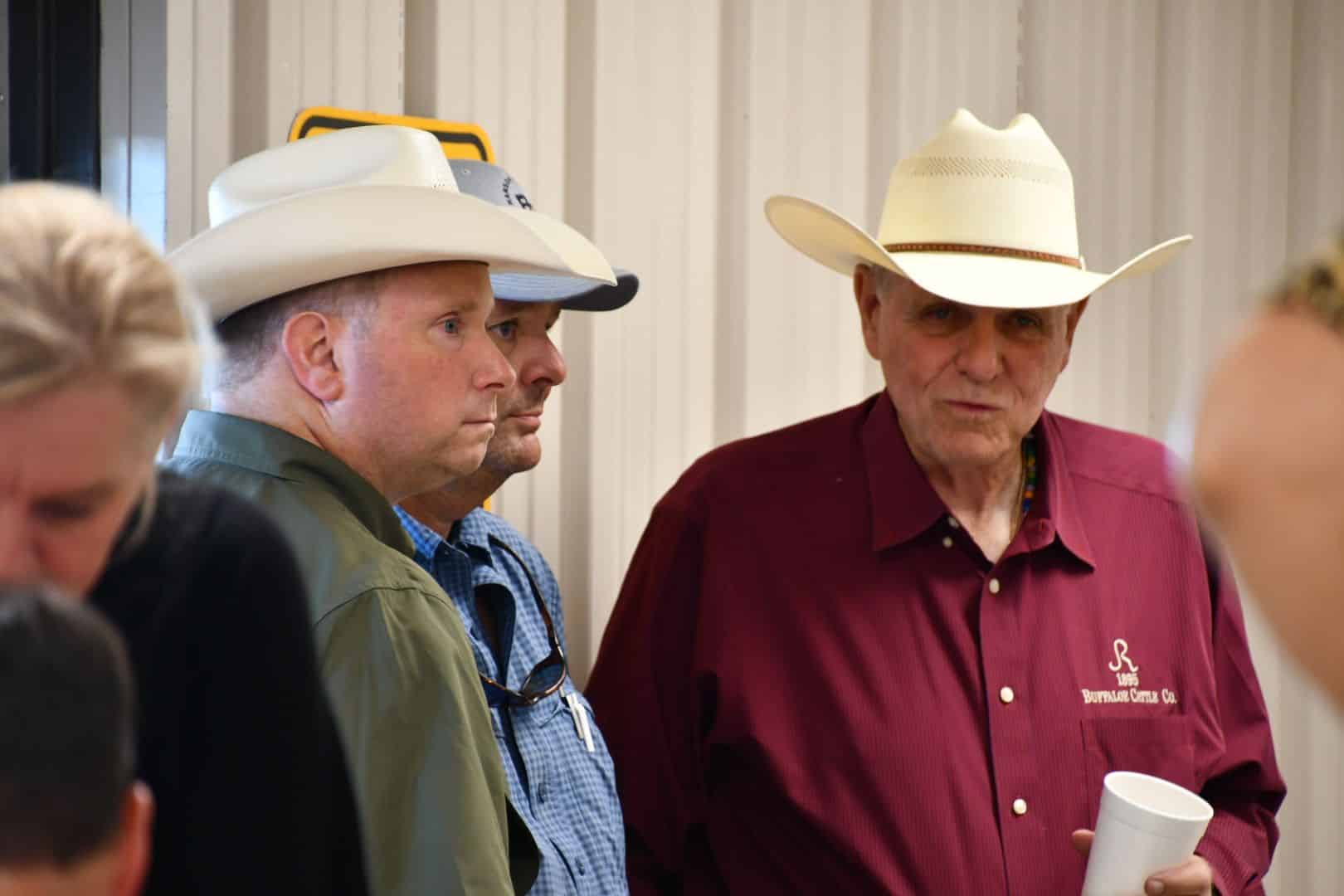
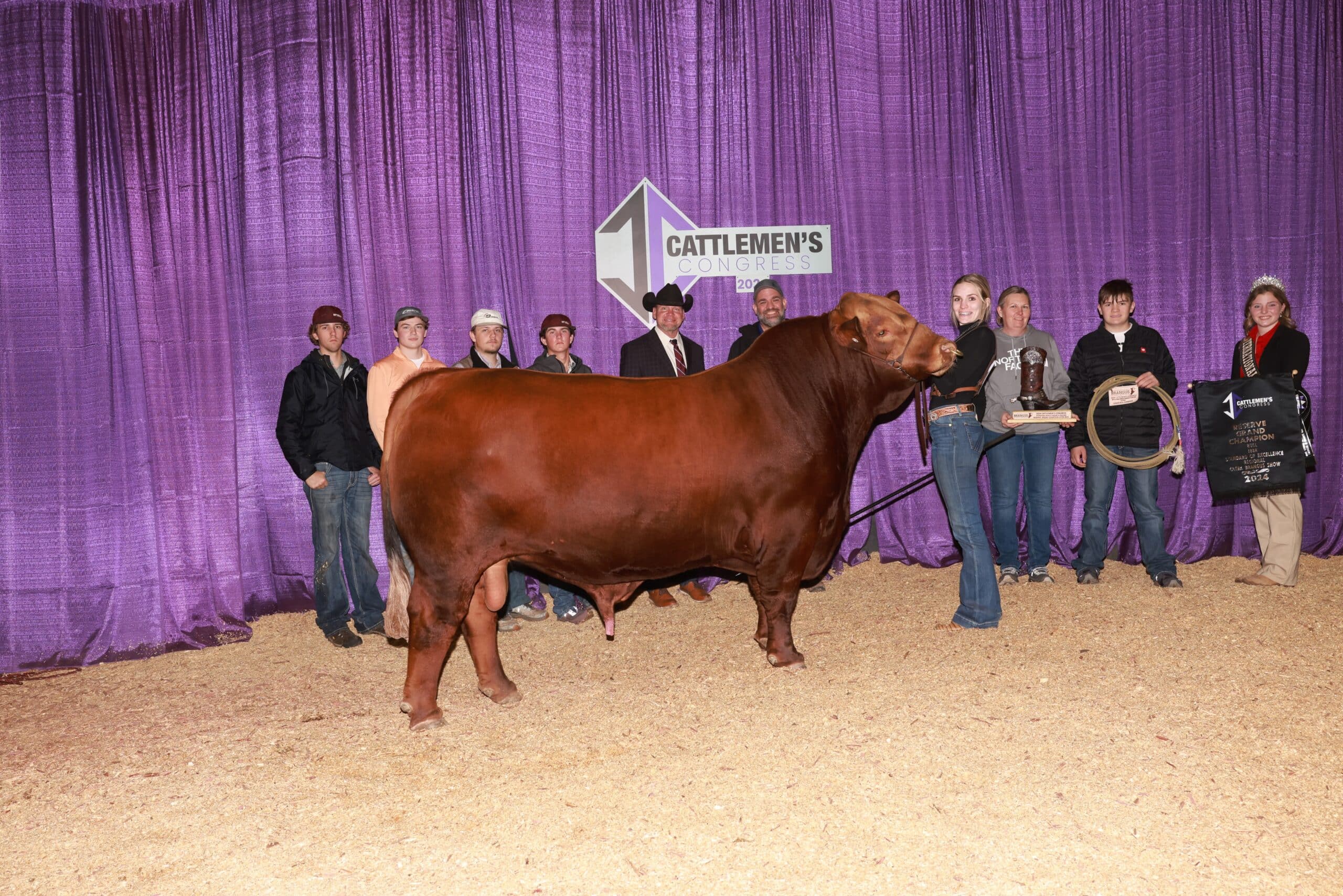

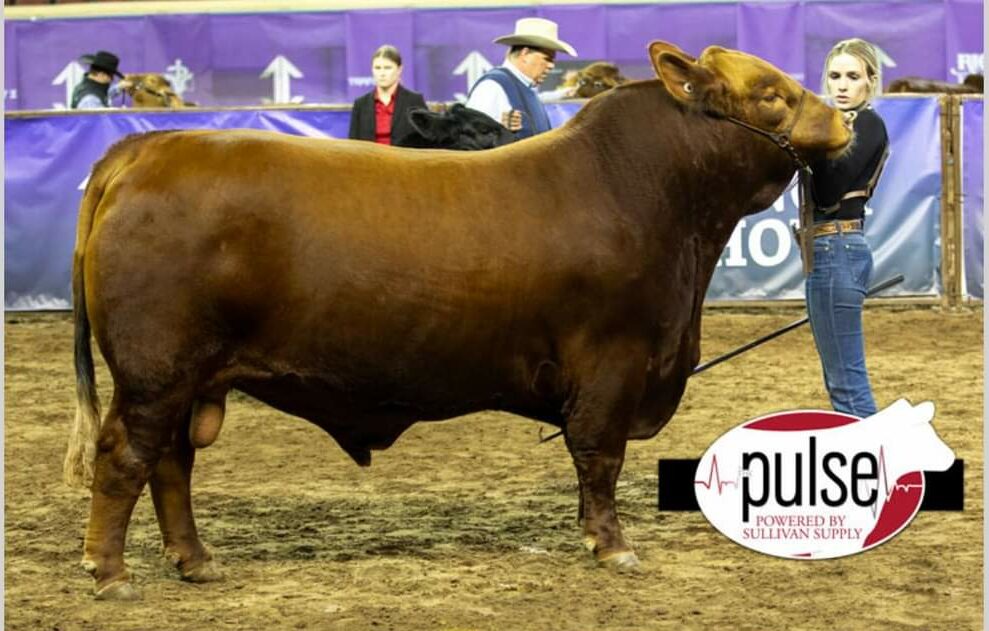
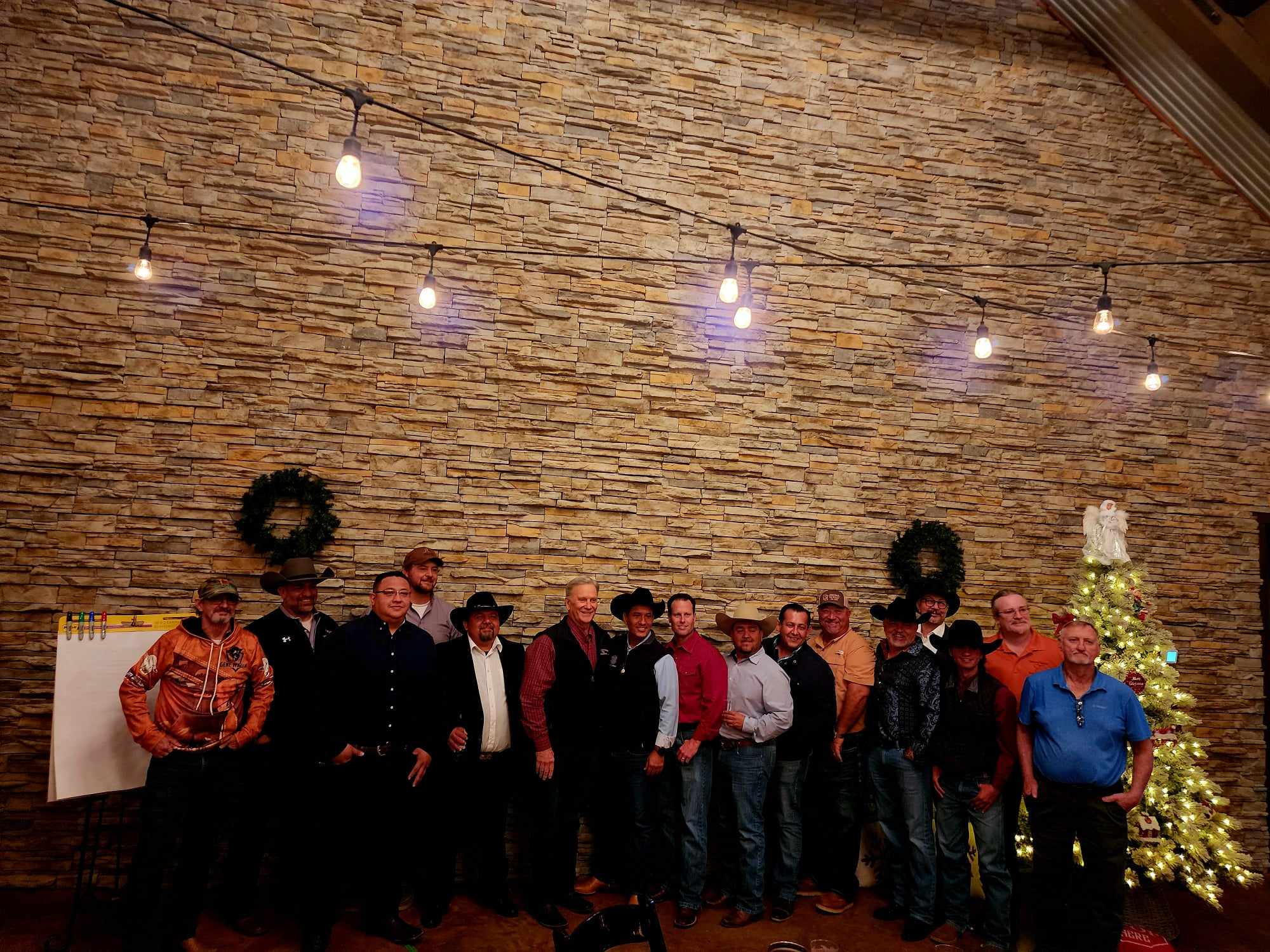
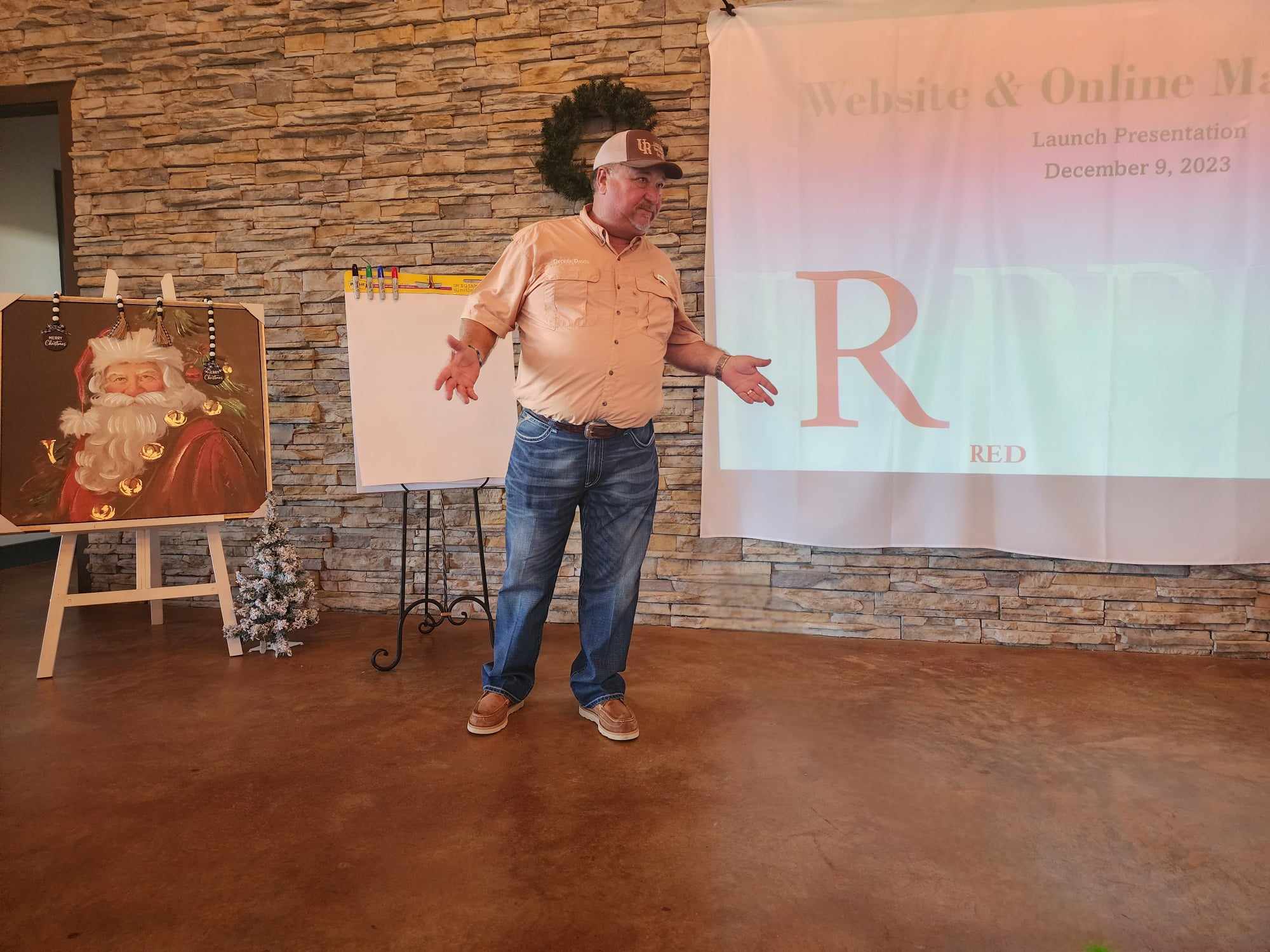
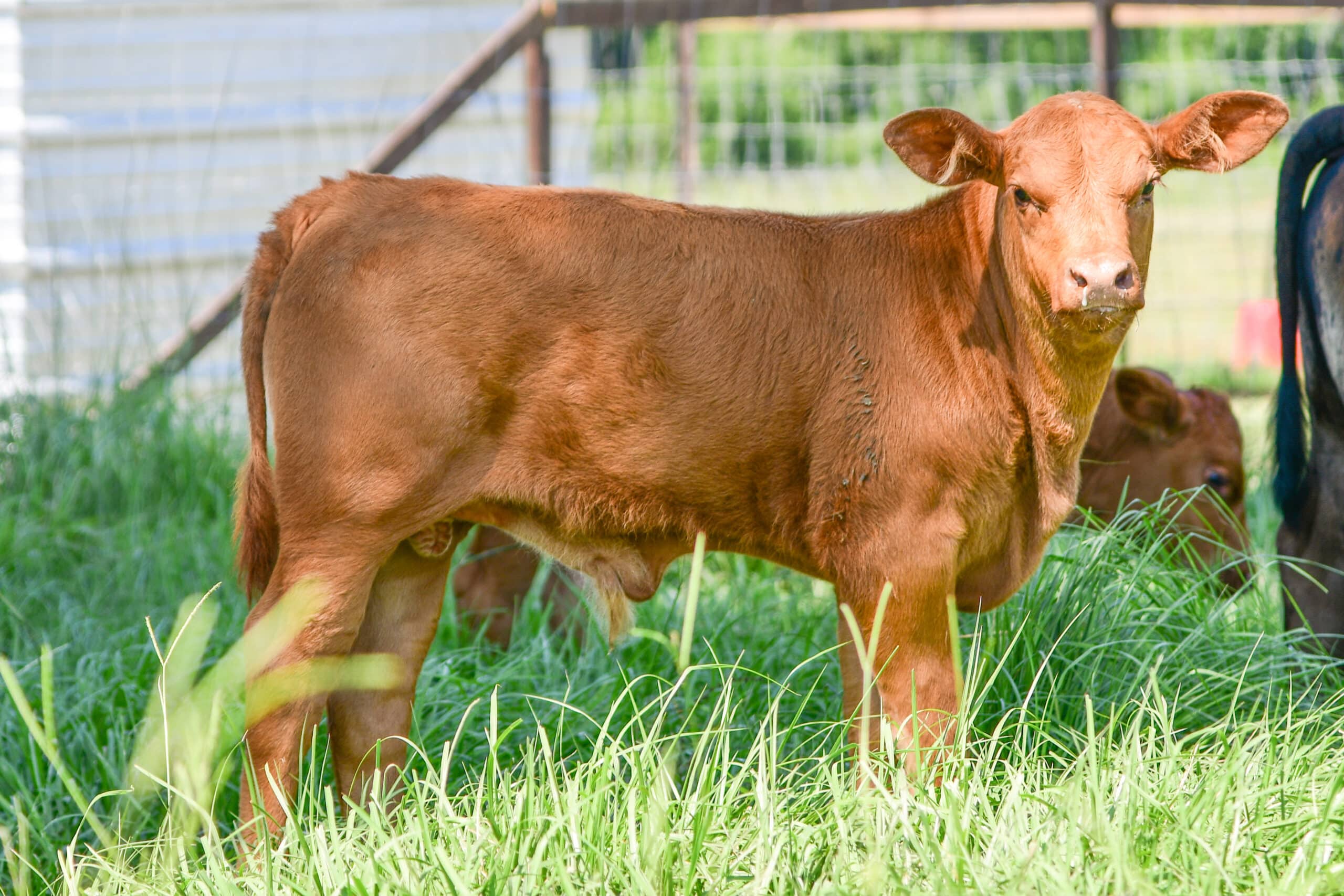

Add a comment